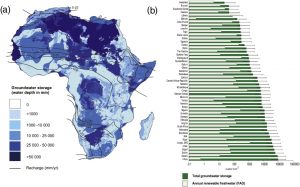by Catalina Macedo Giang
Niger is a country that has experienced more than her fair share of challenges. According to the 2019 UN Development Report, Niger ranked 189th out of 189 countries making it the poorest country in the world. With this poverty comes a lack of resources and infrastructure, which has a devastating impact on the population, particularly in the rural areas.
Over 64% of people in rural areas in Niger lack access to water.
Nine out of 10 Nigeriens don’t have access to the improved sanitation of even a simple latrine.
It’s because women and girls often walk four to six miles a day to collect water.
At first glance, it might seem that , as a landlocked nation,Niger simply lacks access to a reliable source of clean water, but that’s actually not the case. In reality, it is estimated that there are anywhere from 2.5 to 3 billion cubic meters of drinkable water. The challenge, however, is that this water is far from beyond reach, flowing in aquifers, which are 200-300 feet below ground. In fact, Niger ranks 8th highest of all African nations in terms of the productivity of its aquifers.

Groundwater storage for Africa – Panel (a) shows a map of groundwater storage expressed as water depth in millimeters (Döll and Fiedler 2008). Panel (b) shows the volume of groundwater storage for each country. Source: IOPscience
Tragically, people in Niger die every day for lack of that which is plentiful just a couple of hundred feet below ground, clean water. Accessing that water requires expert water engineers and multi-million dollar drilling rigs to access the water, but once the well is drilled, there is no danger of it running dry. The people of Niger don’t need or want endless support. Once the well is drilled, life in the village is transformed for generations. Thanks to our partners at World Vision, we are able to jump start that change with just $6,100 – our cost for drilling a well. With your support, we can give Niger a chance at a brighter future.
References:
https://www.charitywater.org/our-projects/africa/niger
https://globaleducation.edu.au/case-studies/wells-and-pumps-in-niger.html
https://www.wilsoncenter.org/event/climate-change-water-and-conflict-the-niger-river-basin
http://hdr.undp.org/en/2019-MPI
https://iopscience.iop.org/article/10.1088/1748-9326/7/2/024009

